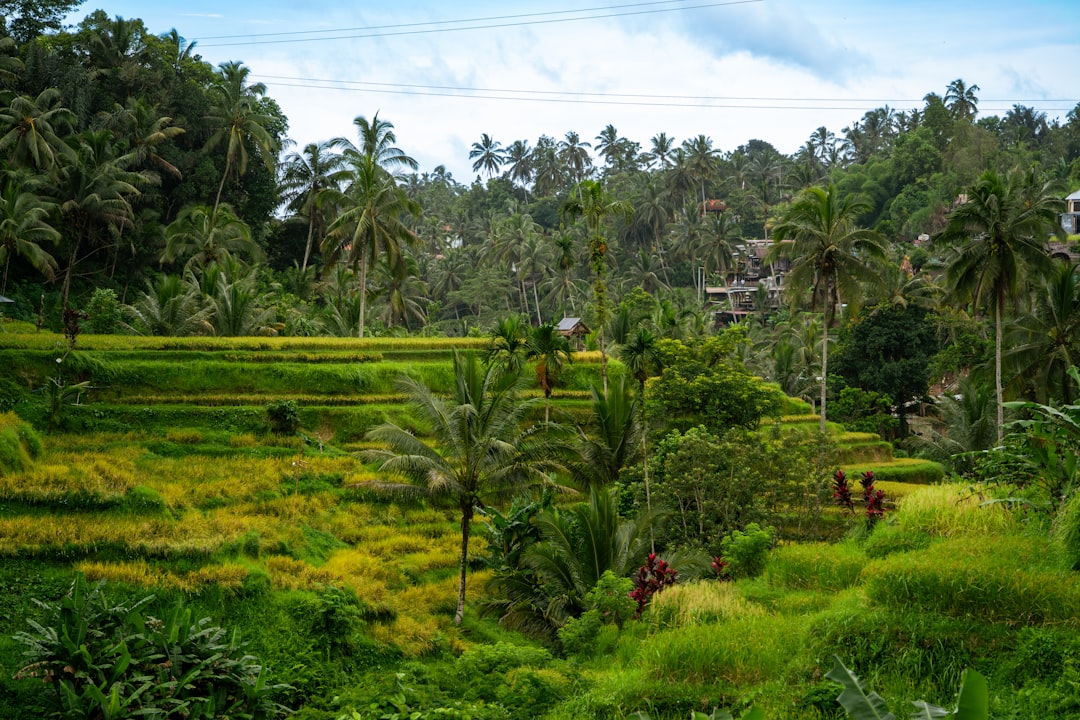The world of travel is constantly evolving, and in 2025, one trend stands out above the rest: sustainable travel. As global awareness of environmental and social impacts grows, more travelers are seeking ways to explore the world responsibly. This isn’t just a niche movement; it’s becoming a mainstream expectation, with a significant portion of travelers actively looking for eco-friendly options.
This comprehensive guide will dive deep into what sustainable travel means, why it’s more crucial than ever, and how you can embark on your own green adventures. From understanding key principles to practical tips and emerging trends, you’ll discover how to make your journeys both memorable and meaningful, contributing positively to the places you visit.
What is Sustainable Travel?
Sustainable travel, often used interchangeably with eco-tourism or responsible tourism, is about minimizing your negative impact while maximizing your positive contributions to the environment, local communities, and economies. It’s a holistic approach that considers the long-term well-being of destinations and their inhabitants.
It’s not just about recycling your hotel toiletries; it encompasses everything from how you get there, where you stay, what you eat, and how you interact with local culture. The goal is to leave a place better than you found it, or at least, to ensure its resources and culture are preserved for future generations.
Defining Responsible Tourism
Responsible tourism emphasizes accountability and respect. It encourages travelers to be mindful of their actions and the consequences they might have on the host community and environment. This includes choosing tour operators committed to ethical practices and engaging in activities that genuinely benefit local people.
- Minimizing environmental impact.
- Respecting local cultures and traditions.
- Maximizing economic benefits for local communities.
- Providing meaningful experiences for both tourists and hosts.
The Triple Bottom Line
Sustainable travel often refers to the “triple bottom line” – a framework that evaluates performance based on three pillars: People, Planet, and Profit. This means that for a travel experience to be truly sustainable, it must be environmentally sound, socially equitable, and economically viable.
For instance, an eco-lodge might use renewable energy (Planet), employ local staff at fair wages (People), and generate revenue that supports the local economy (Profit). All three aspects are crucial for long-term sustainability.

Why Sustainable Travel Matters Now
The urgency for sustainable travel has never been greater. With increasing global travel, the potential for both positive and negative impacts escalates. Choosing sustainable options helps mitigate the downsides and amplify the benefits.
Travelers in 2025 are more informed and conscious, demanding transparency and ethical practices from travel providers. This shift is driving the industry towards more responsible operations.
Environmental Impact
Traditional tourism can contribute significantly to carbon emissions, waste generation, and habitat destruction. Sustainable travel aims to reduce this footprint by promoting practices like using public transport, conserving water and energy, and supporting conservation efforts.
For example, choosing accommodations that utilize solar power or have robust waste management systems directly lessens the environmental burden on a destination.
Supporting Local Communities
When you travel sustainably, your money often stays within the local economy, directly benefiting the people who live there. This means purchasing goods from local artisans, eating at family-run restaurants, and hiring local guides.
This direct economic support helps create jobs, improve infrastructure, and empower communities, fostering a sense of pride and ownership in their tourism offerings.
Cultural Preservation
Mass tourism can sometimes dilute or commodify local cultures. Sustainable travel encourages respectful engagement with local traditions, languages, and customs. It promotes authentic cultural exchange rather than superficial observation.
“Travel is fatal to prejudice, bigotry, and narrow-mindedness, and many of our people need it sorely on these accounts. Broad, wholesome, charitable views of men and things cannot be acquired by vegetating in one little corner of the earth all one’s lifetime.” – Mark Twain
By supporting cultural preservation, travelers help ensure that unique heritage sites, art forms, and traditions endure for generations to come.

Top Trends in Eco-Tourism for 2025
The sustainable travel landscape is dynamic, with new trends constantly emerging to meet evolving traveler demands and environmental challenges. Here are some of the most impactful trends shaping eco-tourism in 2025.
Regenerative Travel
Moving beyond simply “doing no harm,” regenerative travel aims to leave a place better than it was found. This involves actively participating in conservation projects, community development, or ecological restoration during your trip.
Think of it as a form of “voluntourism” but with a deeper, more integrated approach to positive impact. Travelers might help plant trees, clean beaches, or assist in wildlife monitoring programs.
Slow Travel & Local Immersion
The antithesis of fast-paced, checklist tourism, slow travel encourages longer stays in fewer destinations. This allows for deeper immersion into local culture, fostering genuine connections with residents and a more profound understanding of the place.
It often involves using slower modes of transport, like trains or bicycles, and focusing on local experiences rather than tourist traps. This trend significantly reduces carbon footprint and enhances cultural appreciation.
Carbon-Neutral Options
With increasing awareness of climate change, many travel providers are offering carbon-neutral or even carbon-negative options. This can involve offsetting flights, investing in renewable energy projects, or using electric vehicles for tours.
While offsetting isn’t a perfect solution, it’s a step towards mitigating the unavoidable emissions of travel. Look for certified programs that ensure your contributions are genuinely impactful.
Practical Tips for Your Next Green Adventure
Making your travels more sustainable doesn’t require grand gestures; small, conscious choices can make a significant difference. Here’s how you can start planning your next eco-friendly trip.
Choosing Eco-Friendly Accommodations
Look for hotels, guesthouses, or lodges that have recognized eco-certifications (e.g., Green Globe, LEED, EarthCheck). These certifications indicate a commitment to environmental management and social responsibility.
Consider smaller, locally-owned establishments that often have a lower footprint and directly support the community. Ask about their waste management, water conservation, and energy efficiency practices.
- Research Certifications: Look for labels like Green Key, Biosphere, or Fair Trade Tourism.
- Read Reviews: Check for mentions of sustainable practices in guest reviews.
- Ask Questions: Don’t hesitate to inquire about their sustainability initiatives directly.
Mindful Transportation Choices
Transportation is often the largest contributor to a trip’s carbon footprint. Opt for direct flights when possible, or consider trains and buses for shorter distances, which are generally more energy-efficient per passenger.
Once at your destination, prioritize walking, cycling, or using local public transport. This not only reduces emissions but also offers a more authentic way to experience a place.
Supporting Local Businesses Ethically
Make a conscious effort to spend your money where it directly benefits the local economy. This means dining at local eateries, buying souvenirs from local artisans, and booking tours with local guides.
Avoid large, international chains where profits are often repatriated. Engaging with local businesses provides a more authentic experience and ensures your travel dollars empower the community.

Measuring Your Impact: Tools and Certifications
For those serious about sustainable travel, understanding and measuring your impact is key. Several tools and certifications can help you make informed decisions and track your progress.
Understanding Eco-Labels
Just like food or electronics, travel services can carry eco-labels. These certifications are awarded by independent bodies to businesses that meet specific environmental and social standards.
The Global Sustainable Tourism Council (GSTC) Criteria, for example, provides a global standard for sustainable travel and tourism. Looking for businesses that adhere to these criteria can guide your choices.
Carbon Footprint Calculators
Before and after your trip, you can use online carbon footprint calculators to estimate the emissions generated by your travel. Many airlines and travel agencies now offer tools to calculate and offset your flight emissions.
While not perfect, these tools raise awareness and allow you to consider offsetting your impact through certified projects, such as reforestation or renewable energy initiatives.
Conventional vs. Sustainable Travel Choices
| Aspect | Conventional Choice | Sustainable Choice |
|---|---|---|
| Accommodation | Large chain hotel, resorts | Eco-certified lodge, local guesthouse |
| Transportation | Multiple short flights, private car | Direct flights, trains, public transport, cycling |
| Food | International cuisine, imported goods | Local, seasonal produce, traditional dishes |
| Activities | Animal exploitation, large group tours | Ethical wildlife viewing, small group tours with local guides |
| Souvenirs | Mass-produced items | Handmade crafts from local artisans |

Conclusion: Journeying Towards a Better Future
Sustainable travel is more than just a trend; it’s a fundamental shift in how we engage with the world. By embracing responsible practices, we can ensure that the beauty, culture, and natural resources of our planet are preserved for generations to come, while also enriching our own travel experiences.
From choosing eco-certified accommodations to supporting local economies and minimizing your carbon footprint, every conscious decision contributes to a more sustainable future for tourism. The power to make a difference lies in your hands, one trip at a time.
Ready to Plan Your Sustainable Adventure?
Start by researching your next destination’s local initiatives and look for certified eco-friendly operators. Share your sustainable travel tips with friends and family to inspire others!
What are your favorite ways to travel sustainably? Share your thoughts and experiences in the comments below!
Further Reading:
